SHARED MESSAGE
Camillians – Daughters of St. Camillus – women Ministers of the Sick – Handmaidens of the Incarnation – Women Missionaries of the Sick ‘Christ the Hope
THERE IS ONLY ONE SADNESS IN LIFE: THAT OF NOT BEING HOLY!
Joy, Holiness and the Beatitude of Mercy
‘In the twenty-fifth chapter of Matthew’s Gospel (vv. 31-46), Jesus expands on the Beatitude that calls the merciful blessed. If we seek the holiness pleasing to God’s eyes, this text offers us one clear criterion on which we will be judged. “I was hungry and you gave me food, I was thirsty and you gave me drink, I was a stranger and you welcomed me, I was naked and you clothed me, I was sick and you took care of me, I was in prison and you visited me” (vv. 35-36)’.
Pope Francis, apostolic exhortation Gaudete et Exsultate. On the call to holiness in today’s world, n. 95.
‘All of his appearance should demonstrate joyousness and happiness rather than sadness or disordered affection’
St. Camillus de Lellis
‘Blessed are you, Fathers and Brothers, who have made this choice of life because this Religion precedes the others…
Blessed and happy will be those Ministers of the Sick who know the great good of their vocation!
Blessed are you, Brothers, and thank God that the great dish of charity, by which you will certainly gain heaven, has befallen you.
Blessed and happy is that Minister of the Sick who consumes his life in this holy service with his hands inside the dough of charity’ St. Camillus de Lellis and the joy of charity
‘There is only one sadness in life: that of not being holy’ (Léon Bloy)
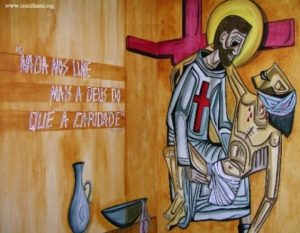 We become holy by living the beatitudes: if we really start from the contemplation of Christ, we have to know how to perceive him above all else in the faces of those with whom he himself wanted to identify. The text of Matthew 25:35-36 is not a simple invitation to charity: it is a charismatic and prophetic page that projects a beam of light on the mystery of Christ and on the mystery of man.
We become holy by living the beatitudes: if we really start from the contemplation of Christ, we have to know how to perceive him above all else in the faces of those with whom he himself wanted to identify. The text of Matthew 25:35-36 is not a simple invitation to charity: it is a charismatic and prophetic page that projects a beam of light on the mystery of Christ and on the mystery of man.
We can all become holy because the Church has always taught that this a universal call and a call that is possible for everyone. This is demonstrated by the many saints that live next door. A life of holiness is closely connected to a life of mercy, the ‘key to heaven’. Therefore, holy are those who know how to be moved (cf. Lk 15:20) and to move (cf. Lk 10:33) in order to help those who are in abject poverty and heal such poverty; those who step away from the elocubrations of rhetorical relational forms which are always present; and those who in an accelerated and aggressive world ‘are joyful and full of good humour. Though completely realistic, they radiate a positive and hopeful spirit’.[1]
A holiness of those next door; of those who live near to us and are a reflection of the presence of God, made up of small gestures experienced in daily life. A holiness that is joy because in life ‘there is only one sadness: that of not being holy’.[2] Holiness is not a mountain that has to be climbed on one’s own, relying on one’s own strength: the holy people of daily life that the Lord places at our side are a help and a comfort of the grace of the Lord that helps us to walk, to go forward, and to embrace our condition, whatever it might be.
Mystics in history
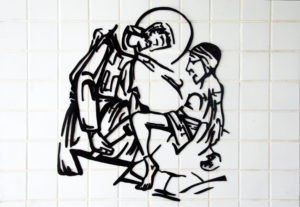 Whereas the world in which we live leads us to fold in on ourselves, to close ourselves, and to paralyse us around our fears, which are justified to a greater or lesser extent, or to be in a constant state of anxiety and agitation, the Spirit of Christ makes us walk with courage in the face of reality, without being scandalised by our frailties and our limitations. This is the authentic source of Christian mission: we can proclaim, without fears, the liberation of the gospel in everyday life before our travelling companions, because we experience the promise of Christ himself who said that he would accompany his sons and daughters ‘until the end of the world’.
Whereas the world in which we live leads us to fold in on ourselves, to close ourselves, and to paralyse us around our fears, which are justified to a greater or lesser extent, or to be in a constant state of anxiety and agitation, the Spirit of Christ makes us walk with courage in the face of reality, without being scandalised by our frailties and our limitations. This is the authentic source of Christian mission: we can proclaim, without fears, the liberation of the gospel in everyday life before our travelling companions, because we experience the promise of Christ himself who said that he would accompany his sons and daughters ‘until the end of the world’.
All the speeches about holiness that introduce any form of dialectical contrast between the love of God and charity towards our brothers and sisters make us be distant from the Gospel: the words of Jesus (cf. Mt 25) that invite everyone to recognise him in the sick, in foreigners, in those who are hungry and in those who are thirsty are not generic exhortations but should be taken literally, sine glossa, by those who want to follow Christ himself. It is love for Jesus that leads them to go towards the most sore-afflicted members of his body.
There are some people who came to love for Christ through love for the poor; their are others who came to love for the poor through love for Jesus: St. Camillus de Lellis – whom we celebrate this year, as well, on his liturgical memorial – captures emblematically both approaches, revealing, despite a certain tradition which has described him as a pensive and gloomy man, a face traversed by the joy of love and evangelical happiness.
‘Blessed are you…happy are you’: the joyous face of the exercise of charity
 In one of his rules Camillus observed: ‘All of his appearance should demonstrate joyousness and happiness rather than sadness or disordered affection’. St. Camillus encouraged his religious not to be tepid in their charity towards the sick and he did this with images that easily impressed themselves on people’s memories because of their freshness and pleasantness: ‘a Minister of the Sick without charity is like a fish out of water that quickly dies. He is like a body without a soul, a soldier without weapons. He is like an emaciated donkey that is covered with a very beautiful and rich drape…O how poor are such men who are worthy of being wept for like the dead of our town are wept for!…Poor fresh-water sailors who get lost and drown in a glass of water!’
In one of his rules Camillus observed: ‘All of his appearance should demonstrate joyousness and happiness rather than sadness or disordered affection’. St. Camillus encouraged his religious not to be tepid in their charity towards the sick and he did this with images that easily impressed themselves on people’s memories because of their freshness and pleasantness: ‘a Minister of the Sick without charity is like a fish out of water that quickly dies. He is like a body without a soul, a soldier without weapons. He is like an emaciated donkey that is covered with a very beautiful and rich drape…O how poor are such men who are worthy of being wept for like the dead of our town are wept for!…Poor fresh-water sailors who get lost and drown in a glass of water!’
Every appointment was propitious to call his religious to the joyous ‘aesthetics’ of charity. Such was once the case in the street when coming home from the solemn saying of vespers. To one of his religious who did not stop praising the chants and the music, Camillus answered: “another music would have pleased me more”. His religious asked him in amazement: “which music?” Camillus answered him: “I like the music that poor sick people make in hospitals, when many together call me and say: “Father give me something to rinse my mouth, make my bed, warm my feet”, and this is the music that should in large measure please the Ministers of the Sick”.
But the heart of Camillus, swollen with ‘lightness’, was expressed in an exulting way above all in what we love to call the beatitudes. We are dealing here with a magical moment of a joy that springs in a bubbling way from the Gospel; that is to say from the lips and the heart of Christ, “Bless you Father…” (cf. Mt 11:25), or of Mary, “My soul magnifies the Lord…” (cf. Lk 1:46), or of figures in the Bible who see the wonderful project of God with their own eyes: ‘This should excite and encourage us to give our all and to embrace that unique plan that God willed for each of us from eternity: “Before I formed you in the womb I knew you, and before you were born I consecrated you” (Jer 1:5)’.[3]
This wonder generated by the fervour of charity has been continued in the long lineage of extraordinary men and women whom we call ‘saints’: ‘For these great saints, mental prayer, the love of God and the reading of the Gospel in no way detracted from their passionate and effective commitment to their neighbours; quite the opposite’.[4]
From here springs the poetry of charity: ‘Blessed are you, Fathers and Brothers, who have made this choice of life because this Religion precedes the others…Blessed and happy will be those Ministers of the Sick who know the great good of their vocation! Blessed are you, Brothers, and thank God that the great dish of charity, by which you will certainly gain heaven, has befallen you. Blessed and happy are those Ministers of the Sick who taste this holy liqueur of heaven: works of charity in hospitals. Blessed and happy is that Minister of the Sick who consumes his life in this holy service with his hands inside the dough of charity’. Very small things. But things that he carried inside him, he, a poor man who as a saint enjoyed all that happiness, that wisdom, that poetry, those beatitudes, so full of eternity, so ‘tasting of heaven and earth’[5]!
Charism and joy
 And how much joy he felt when he was in a hospital: his earthly paradise, his garden of flowers and scent. While taking care of a sick man whom nobody dared to draw near to without disgust, St. Camillus said: “This is my Lord whom I serve with ardour and happiness”. At times his fervour led him to ‘jump up and dance around the hospital’, and, enraptured by ecstasy, ‘in giving food to the patients he was unable to find their mouths’.
And how much joy he felt when he was in a hospital: his earthly paradise, his garden of flowers and scent. While taking care of a sick man whom nobody dared to draw near to without disgust, St. Camillus said: “This is my Lord whom I serve with ardour and happiness”. At times his fervour led him to ‘jump up and dance around the hospital’, and, enraptured by ecstasy, ‘in giving food to the patients he was unable to find their mouths’.
A visit to a hospital was enough to make him feel visibly better: “As soon as I set foot in the hospital all my maladies are healed”. Yes, indeed, because a hospital was a chosen setting to exercise that charity which he tirelessly spoke about to his religious: “From me you will hear nothing but charity…So, my brothers, do not be amazed if I repeat to you so many times that you should be pitying and merciful, because I am made like other priests of the town who (as is said by the common people) can read no other books than their missals”. One witness declared: “and not only did he become happy, but the whole of the hospital as well”.
Not even his approaching death managed to generate fear in Camillus. To a Superior who asked him how he was, he answered: “Well and happy, above all because I have received the good news that soon I will walk and travel towards heaven”.
‘Do good’ or ‘love’? The difference – the ‘more’ lies in joy
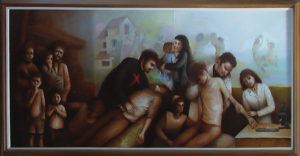 ‘Those who want to do good, knock on the door; those who love will find the door open’ (Tagore Rabindranath). The good that one wants to do to another person – especially when his or her indigence or frailty is already well classified – is always the result of an idea of good. A benefactor, especially if he or she has had a good formation, already knows what a poor sick person needs: support, exhortation, praise…
‘Those who want to do good, knock on the door; those who love will find the door open’ (Tagore Rabindranath). The good that one wants to do to another person – especially when his or her indigence or frailty is already well classified – is always the result of an idea of good. A benefactor, especially if he or she has had a good formation, already knows what a poor sick person needs: support, exhortation, praise…
But love is different: one places oneself where the other person is: “and if anyone forces you to go one mile, go with him two miles”, Jesus declared to us in his Sermon on the Mount (cf. Mt 5:41). ‘We are inspired to act by the example of all those priests, religious, and laity who devote themselves to proclamation and to serving others with great fidelity…Their testimony reminds us that, more than bureaucrats and functionaries, the Church needs passionate missionaries, enthusiastic about sharing true life. The saints surprise us, they confound us, because by their lives they urge us to abandon a dull and dreary mediocrity’,[6] in order to decipher first and then respond to the immense difficulties that every person in need feels when he or she has to ask for help. As Camillus knew well, and since the Spirit of the Gospel had entered his soul, when he addressed sick people he did everything to make them not only ask him for some service but also to command him to perform it.
Unfortunately, amongst us, as well, it can happen that valid forms of love, invoking Christ, become reduced to cold uniform schemata, and that the very person of Jesus, who is the archetype of love, can be made into an object of conceited dominance. The commandment of love does not say simply that we should love – it also prescribes that this should be done with style, that is to say with fullness of ‘joy’, of ‘parrhesía’, of ‘a joyful assurance that leads us to glory in the Gospel we proclaim. It is an unshakeable trust in the faithful Witness who gives us the certainty that nothing can “separate us from the love of God” (Rom 8:39)’.[7]
Joy bestows upon the exercise of works of mercy all of our heart and at the same time all of our mind: only with this condition, like the Good Samaritan, will we know how to stop and love because we see, and we know how to see, because we love, without prejudices: ‘the necessary result of the love of charity is joy’![8]
May the Lord Jesus, the authentic source of joy and mercy, nourish our passion to serve the sick as an expression of the ‘greatest Love’, inspired by the joyous form of service that was borne witness to by St. Camillus!
[1] Pope Francis, apostolic exhortation Gaudete et Exsultate. On the call to hominess in today’s world, n 122.
[2] Léon Bloy, La Femme pauvre (Gallimard, Paris, 1980).
[3] Pope Francis, apostolic exhortation Gaudete et Exsultate. On the call to holiness in today’s world, n. 13.
[4] Pope Francis, apostolic exhortation Gaudete et Exsultate. On the call to holiness in today’s world, n. 100.
[5] Germana Sommaruga, Camillo de Lellis: contestatore, riformatore, santo (Edizione Oari, 2005), p. 108.
[6] Pope Francis, apostolic exhortation Gaudete et Exsultate. On the call to holiness in today’s world, n. 138.
[7] Pope Francis, apostolic exhortation Gaudete et Exsultate. On the call to holiness in today’s world, n. 132.
[8] Pope Francis, apostolic exhortation Gaudete et Exsultate. On the call to holiness in today’s world, n. 122.



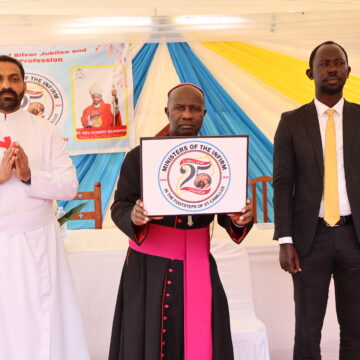

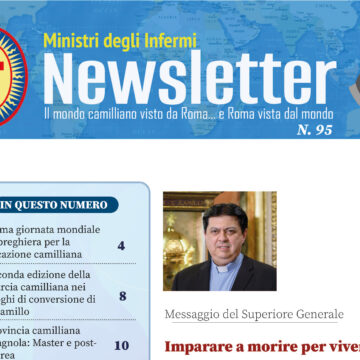
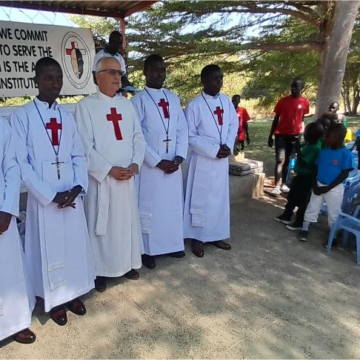


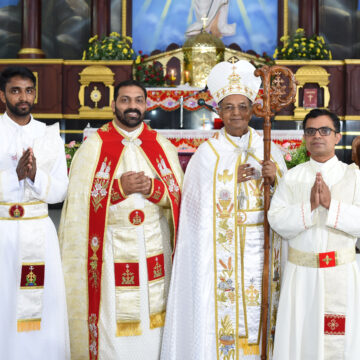
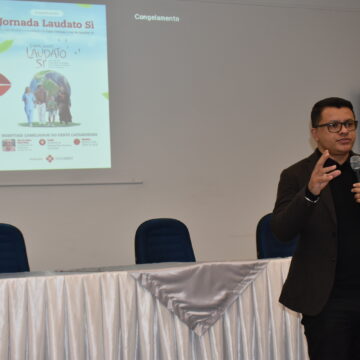
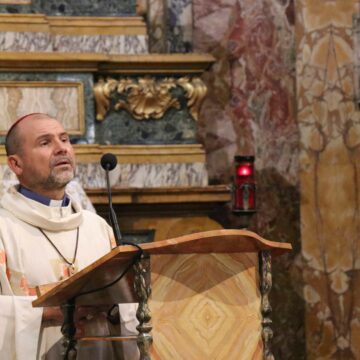
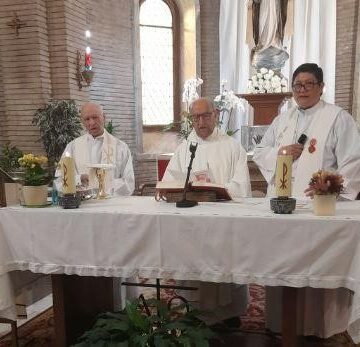
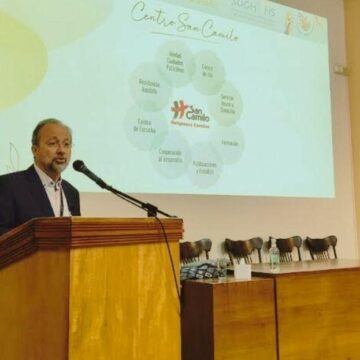
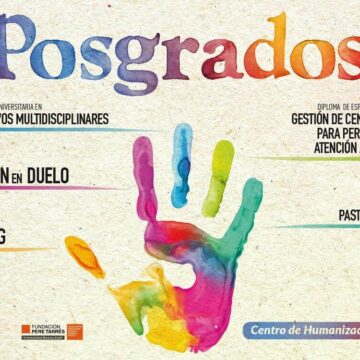
Camillians on Facebook
Camillians on Twitter
Camillians on Instagram